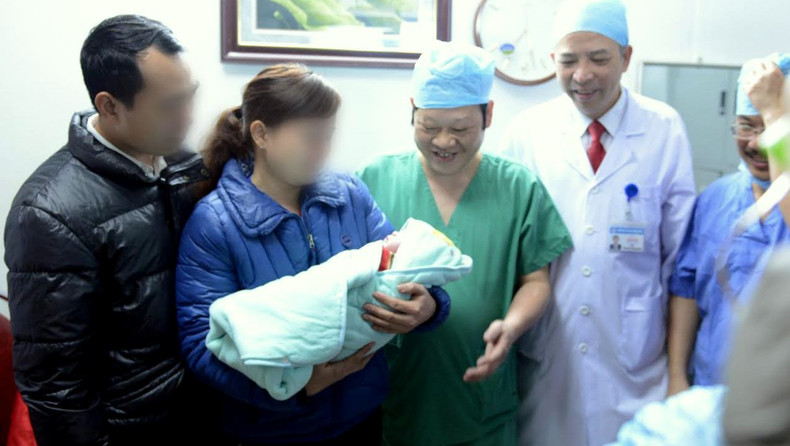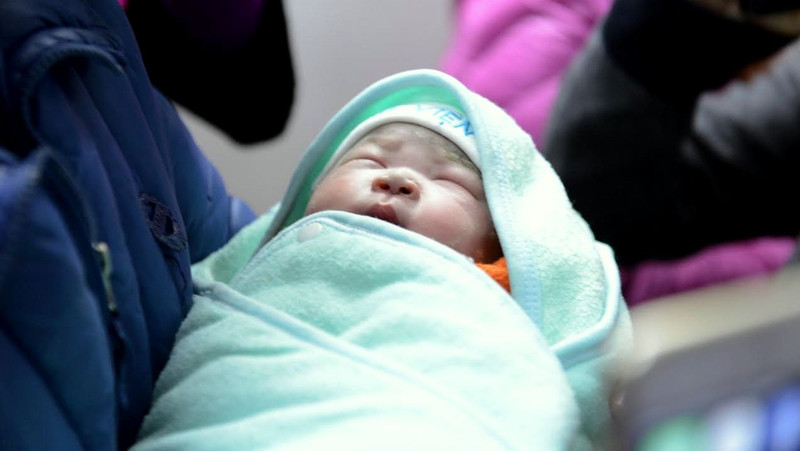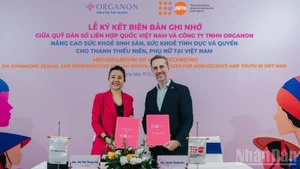The baby girl weighs 3.6 kg, born by caesarean section to a 38-year-old couple from northern Ninh Binh province.
Prof. Nguyen Viet Tien, Deputy Minister of Health and director of the National Reproductive Assistance Centre directly performed the c-section.
The happy mother said that a congenital reproductive defect prevented her from becoming pregnant. She had been trying to have a baby over the last 16 years when she and her husband decided to register to have a baby through surrogacy last March after the surrogacy procedures were officially made legal in Vietnam on January 1, 2015.
The surrogate mother for her child is her 46-year-old aunt. Receiving her daughter from Deputy Minister Tien, she and her husband burst into tears.
"We've been waiting for so long. I’m really happy; the baby is perfect,” the mother said.
The surrogate mother will breastfeed the baby for a month before switching to formula.

The couple (left) receive their baby from Deputy Minister of Health Nguyen Viet Tien (in green blouse), who directly performed the c-section for the first surrogacy in Vietnam, Hanoi, January 22, 2016. (Credit: zing.vn)
After more than a year since the approval of the surrogacy provision under the Marriage and Family Law, there are currently 65 successful surrogacy pregnancies taking place, including 46 out of 60 approved at National Hospital of Obstetrics and Gynecology and 19 out of a total 33 approved at Ho Chi Minh City’s Tu Du Hospital. There will be more babies born through surrogacy this year.
According to Deputy Minister Tien, compared to in vitro fertilisation, surrogacy is more difficult as it takes an ovum from a woman without a uterus or who is physically incapable of having children, and poses life-threatening risks. However, Vietnam’s surrogacy techniques have reached international-standards with a success rate of 60-70%.
Tien also said that surrogacy should be the last option, after others proved unsuccessful.
Currently, costs for surrogacy are the same as in vitro fertilisation, on average about VND60 million (US$2,700).
For a surrogacy to take place, the couple and the surrogate mother must complete a dossier comprising of paperwork and certifications to ensure legal procedures. The surrogate must be related through kinship to the wife or husband. The board of experts of the hospital qualified for carrying out surrogacy then determines whether the infertile couple are eligible for the procedure.
















